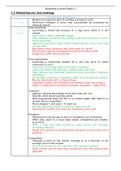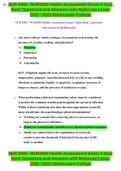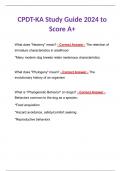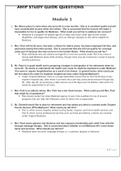Summary
A-level Edexcel Business Paper 3 Summary Notes (Theme 1-4) for REDUCED CONTENT 2022 (DOES NOT CONTAIN THE WHOLE THEME 1-4 SPEC)
- Institution
- PEARSON (PEARSON)
Summarised, condensed, easy to understand revision notes containing only the REDUCED CONTENT for the 2022 summer paper 3 exam Also selling notes in the same style for paper 1 and 2 Theme 1 Marketing and people 1.3 Marketing mix and strategy 1.4 Managing people Theme 2 Managing business a...
[Show more]












